Filter by

From Animals to Animats 8: Proceedings of the Eighth International Conference…
"A Bradford book."New research on the adaptive behavior of natural and synthetic agents.The biannual International Conference on the Simulation of Adaptive Behavior brings together researchers from ethology, psychology, ecology, artificial intelligence, artificial life, robotics, engineering, and related fields to advance the understanding of behaviors and underlying mechanisms that allow natur…
- Edition
- -
- ISBN/ISSN
- 9780262291446
- Collation
- 1 online resource (xi, 530 pages) :illustrations
- Series Title
- -
- Call Number
- -
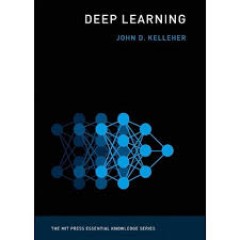
Deep learning
OCLC-licensed vendor bibliographic record.
- Edition
- -
- ISBN/ISSN
- 9780262354899
- Collation
- 1 online resource (272 pages).
- Series Title
- -
- Call Number
- -
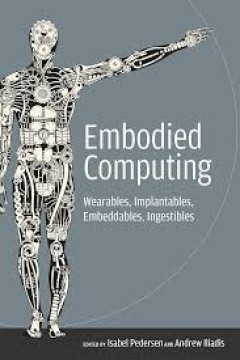
Embodied computing :wearables, implantables, embeddables, ingestibles
"Embodied technologies such as wearable tracking bracelets, ingestible sensors, embeddable prosthetics, and implantable microchips all stand to redefine the human experience and what it means to speak of technology and the body. No longer the speculative stuff of science fiction, embodied technologies have arrived and are being developed by a variety of industries at an alarming rate. Embodied …
- Edition
- -
- ISBN/ISSN
- 0262357798
- Collation
- 1 online resource.
- Series Title
- -
- Call Number
- -
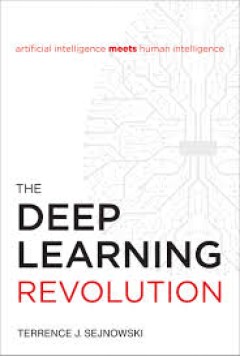
The deep learning revolution
How deep learning-from Google Translate to driverless cars to personal cognitive assistants-is changing our lives and transforming every sector of the economy. The deep learning revolution has brought us driverless cars, the greatly improved Google Translate, fluent conversations with Siri and Alexa, and enormous profits from automated trading on the New York Stock Exchange. Deep learning netwo…
- Edition
- -
- ISBN/ISSN
- 9780262346825
- Collation
- 1 online resource.
- Series Title
- -
- Call Number
- -
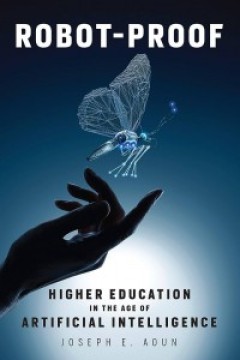
Robot-proof :higher education in the age of artificial intelligence
"How to educate the next generation of college students to invent, to create, and to discover--filling needs that even the most sophisticated robot cannot. Driverless cars are hitting the road, powered by artificial intelligence. Robots can climb stairs, open doors, win Jeopardy, analyze stocks, work in factories, find parking spaces, advise oncologists. In the past, automation was considered a…
- Edition
- -
- ISBN/ISSN
- 9780262344319
- Collation
- 1 online resource (xxi, 187 pages)
- Series Title
- -
- Call Number
- -
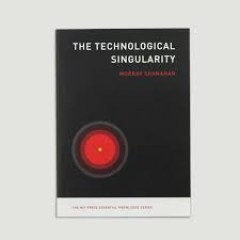
The Technological Singularity
"The idea that human history is approaching a 'singularity'--that ordinary humans will someday be overtaken by artificially intelligent machines or cognitively enhanced biological intelligence, or both--has moved from the realm of science fiction to serious debate. Some singularity theorists predict that if the field of artificial intelligence (AI) continues to develop at its current dizzying r…
- Edition
- -
- ISBN/ISSN
- 0262331829
- Collation
- 1 online resource (xxiii, 244 pages).
- Series Title
- -
- Call Number
- -

How the body shapes the way we think : a new view of intelligence
"A Bradford book."An exploration of embodied intelligence and its implications points toward a theory of intelligence in general; with case studies of intelligent systems in ubiquitous computing, business and management, human memory, and robotics.OCLC-licensed vendor bibliographic record.
- Edition
- -
- ISBN/ISSN
- 9780262281553
- Collation
- 1 online resource (xxiv, 394 pages) : illustrations
- Series Title
- -
- Call Number
- 001 PFE h
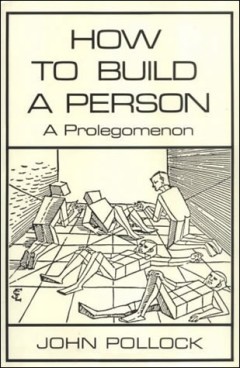
How to build a person : a prolegomenon
"A Bradford book."Pollock describes an exciting theory of rationality and its partial implementation in OSCAR, a computer system whose descendants will literally be persons.Building a person has been an elusive goal in artificial intelligence. This failure, John Pollock argues, is because the problems involved are essentially philosophical; what is needed for the construction of a person is a p…
- Edition
- -
- ISBN/ISSN
- 0585336997
- Collation
- 1 online resource (xi, 189 pages) : illustrations
- Series Title
- -
- Call Number
- 001 POL h

In-depth understanding : a computer model of integrated processing for narrat…
Revision of the author's thesis (doctoral--Yale University, 1982).This book describes a theory of memory representation, organization, and processing for understanding complex narrative texts. The theory is implemented as a computer program called BORIS which reads and answers questions about divorce, legal disputes, personal favors, and the like. The system is unique in attempting to understan…
- Edition
- -
- ISBN/ISSN
- 0262256061
- Collation
- 1 online resource (xvii, 458 pages).
- Series Title
- Artificial Intelligence Series
- Call Number
- 001 DYE i

NETL, a system for representing and using real-world knowledge
"Consider for a moment the layers of structure and meaning that are attached to concepts like lawsuit, birthday party, fire, mother, walrus, cabbage, or king.... If I tell you that a house burned down, and that the fire started at a child's birthday party, you will think immediately of the candles on the cake and perhaps of the many paper decorations. You will not, In all probability, find your…
- Edition
- -
- ISBN/ISSN
- 9780262256100
- Collation
- 1 online resource (278 pages) :illustrations.
- Series Title
- -
- Call Number
- -
 Computer Science, Information & General Works
Computer Science, Information & General Works  Philosophy & Psychology
Philosophy & Psychology  Religion
Religion  Social Sciences
Social Sciences  Language
Language  Pure Science
Pure Science  Applied Sciences
Applied Sciences  Art & Recreation
Art & Recreation  Literature
Literature  History & Geography
History & Geography